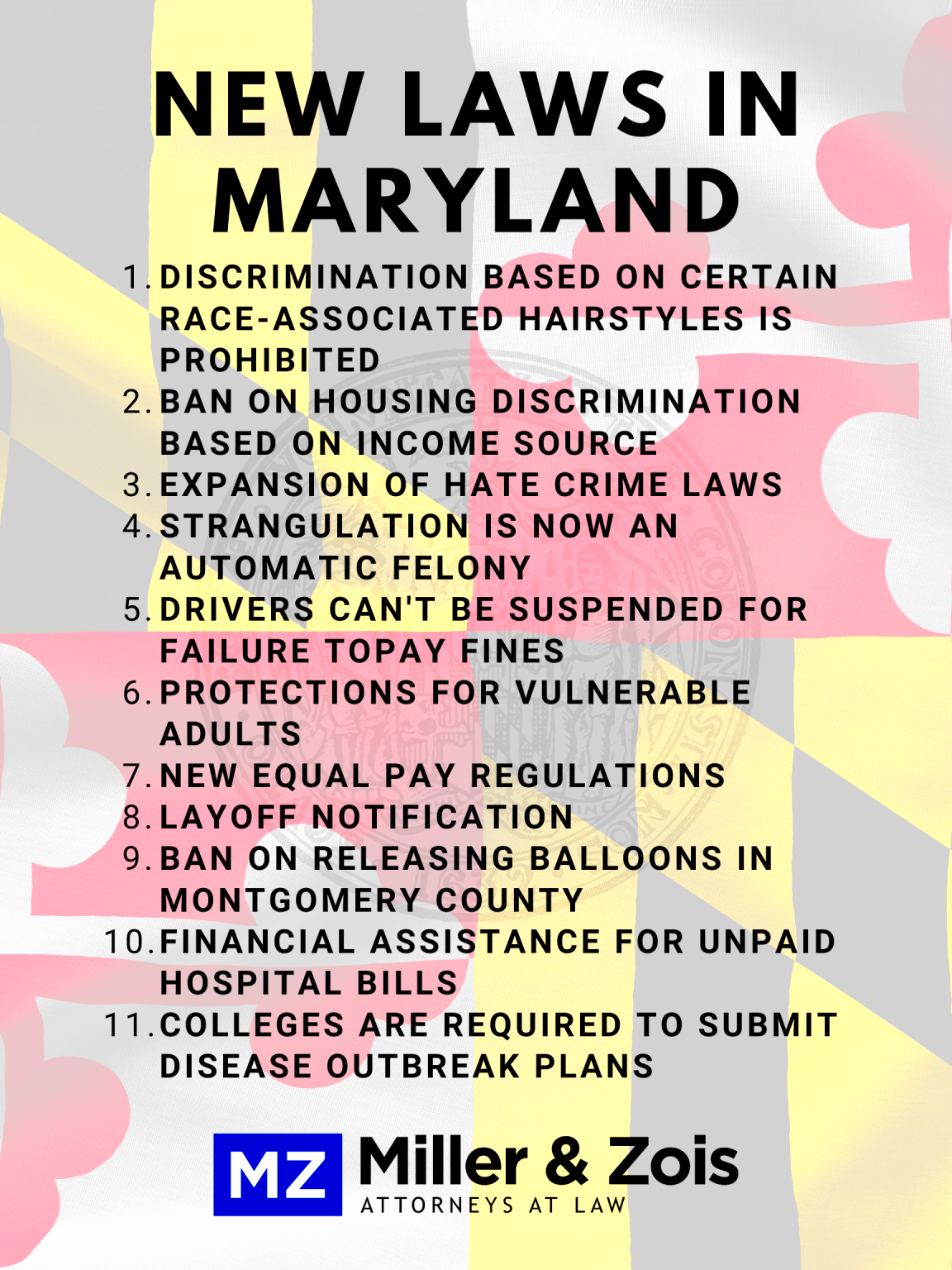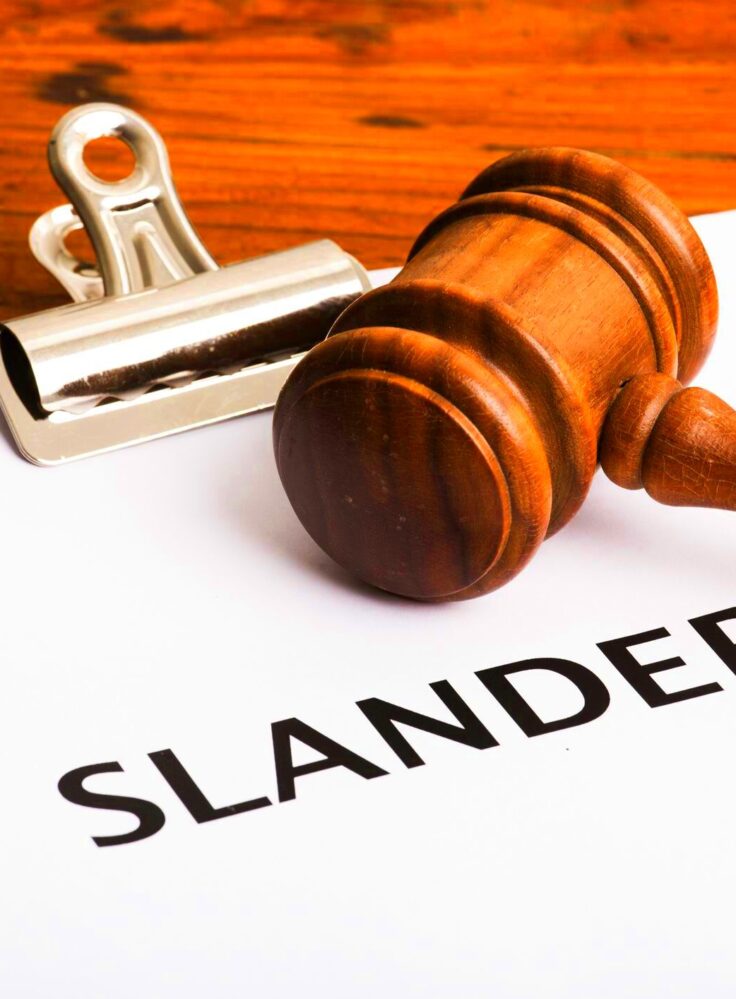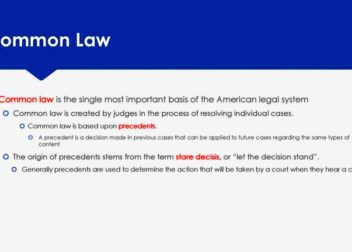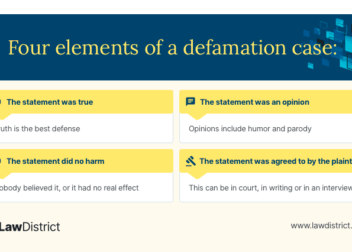What Are Maryland’s Slander Laws and How They Work
Slander is a serious issue that can harm a person’s reputation and livelihood. In Maryland, slander is defined as a false spoken statement that damages someone’s reputation. It’s important to understand how slander laws work in this state to protect yourself and your rights. If you believe you’ve been a victim of slander, knowing the basics can help you take the right steps.
Key Elements of a Slander Claim

To successfully prove a slander claim in Maryland, you must establish several key elements:
- False Statement: The statement must be false. Truth is a complete defense against slander.
- Spoken Statement: The statement must be spoken, not written (which would be considered libel).
- Publication: The statement must be made to a third party, not just the person it’s about.
- Harm: The statement must cause harm to the person’s reputation or livelihood.
- Fault: The person making the statement must be at fault, either through negligence or actual malice.
Understanding these elements can help you determine if you have a valid slander claim in Maryland.
Types of Slanderous Statements

Slanderous statements can take various forms. Here are some common types:
- Defamatory Statements: These are statements that can harm a person’s reputation, such as accusations of a crime.
- Statements Implying a Lack of Competence: For example, suggesting that someone is not qualified to perform their job.
- Statements Affecting Personal Relationships: Claims about someone’s fidelity or character can also be considered slanderous.
In Maryland, it’s crucial to recognize these types of statements, as they can lead to legal action if proven false and damaging.
Proving Slander in Maryland Courts
Proving slander in Maryland courts can be a challenging process. You must demonstrate several key factors to establish your case. First, you’ll need to provide clear evidence that the statement made was indeed false. This means gathering any documentation, recordings, or witness testimonies that support your claim. Next, you must show that the statement was spoken and published to a third party. This could involve presenting evidence of who heard the statement and how it spread.
Additionally, you need to demonstrate the harm caused by the slanderous statement. This can include:
- Emotional Distress: Showing how the statement affected your mental well-being.
- Economic Loss: Evidence of lost job opportunities or income due to damaged reputation.
- Damaged Relationships: Testimonies from friends, family, or colleagues about how your relationships were affected.
Lastly, you must prove that the person who made the statement acted with some level of fault, whether through negligence or actual malice. This combination of evidence is crucial to build a strong case in court.
Defenses Against Slander Claims
When facing a slander claim, there are several defenses that can be used to protect oneself. Understanding these defenses is essential if you’re accused of making slanderous statements. Here are the most common defenses:
- Truth: If the statement is true, it cannot be considered slanderous, regardless of the damage it may have caused.
- Opinion: Statements that are clearly opinions rather than facts often can’t be classified as slander.
- Privilege: Certain statements made in specific contexts, such as during court proceedings, are protected by privilege.
- Consent: If the person who claims to be defamed consented to the publication of the statement, it may not be actionable.
By understanding these defenses, you can better navigate a slander claim and protect your rights.
Statute of Limitations for Slander in Maryland
In Maryland, the statute of limitations for filing a slander claim is relatively short. You generally have only one year from the date of the slanderous statement to file a lawsuit. This timeframe emphasizes the importance of acting quickly if you believe you have been defamed.
Here’s a quick breakdown of the key points regarding the statute of limitations:
- Time Limit: You must file your claim within one year of the incident.
- Importance of Documentation: Keep records of the statement and any damages incurred, as these will support your case.
- Consulting a Lawyer: It’s advisable to speak with a legal expert as soon as possible to ensure you meet all deadlines and gather necessary evidence.
Missing the statute of limitations can result in losing your right to pursue legal action, so understanding these timelines is crucial for anyone considering a slander claim in Maryland.
Impact of Slander on Reputation
Slander can have a profound impact on an individual’s reputation. When false statements are spread, they can lead to significant emotional and financial distress. In today’s digital age, slanderous remarks can quickly go viral, reaching a broad audience and causing lasting damage. People often underestimate how quickly rumors can spread and the lasting effects they can have.
The effects of slander can be wide-ranging:
- Loss of Trust: Friends, family, and colleagues may begin to doubt your character based on false statements, leading to strained relationships.
- Career Consequences: Slander can affect job opportunities and professional relationships, potentially leading to job loss or difficulty finding new employment.
- Mental Health Strain: The emotional toll can be significant, leading to stress, anxiety, and depression.
- Social Isolation: You may feel alienated from your community, affecting your overall quality of life.
Understanding the serious consequences of slander is essential for both those who may be victims and those who may inadvertently spread false information.
Consulting a Maryland Attorney for Slander Cases
If you believe you have been a victim of slander, consulting a Maryland attorney who specializes in defamation law can be crucial. An attorney can help you navigate the complex legal landscape and determine whether you have a valid case. Here’s what you can expect during the process:
- Initial Consultation: Many attorneys offer free consultations to discuss your situation and advise on the next steps.
- Case Evaluation: Your attorney will evaluate the details of your claim, including the statement made, its context, and the impact on your life.
- Gathering Evidence: An attorney will help you collect necessary evidence, including witness statements and documentation of damages.
- Legal Strategy: They will work with you to develop a strategy for your case, whether that involves negotiation or pursuing litigation.
Having legal representation can increase your chances of a favorable outcome, ensuring your rights are protected throughout the process.
FAQs About Slander Laws in Maryland
Here are some common questions people have about slander laws in Maryland:
- What is the difference between slander and libel? Slander refers to spoken statements, while libel involves written statements.
- How can I prove slander? You must demonstrate that the statement was false, spoken, published, harmful, and made with fault.
- Is truth a defense against slander? Yes, if the statement is true, it cannot be considered slander.
- What should I do if I am slandered? Document the incident, gather evidence, and consult an attorney as soon as possible.
- Can I sue for slander if it was said as a joke? If the statement can reasonably be seen as damaging to your reputation, you may still have a case.
Understanding these FAQs can help clarify your rights and the legal options available to you if you find yourself facing slander in Maryland.
Conclusion on Maryland’s Slander Laws
Maryland’s slander laws play a crucial role in protecting individuals from false statements that can harm their reputation. Understanding the elements of a slander claim, the types of statements that qualify, and the legal defenses available is essential for anyone navigating this complex area of law. The impact of slander can be significant, affecting not only personal relationships but also professional opportunities and mental well-being.
If you find yourself in a situation involving slander, it’s vital to act quickly and consult with a qualified attorney who can help guide you through the legal process. They can assist you in gathering the necessary evidence and developing a strong case. Being aware of your rights and the limitations for filing a claim can empower you to take the appropriate steps to protect your reputation. Ultimately, knowledge and timely action are key to addressing slander effectively in Maryland.


